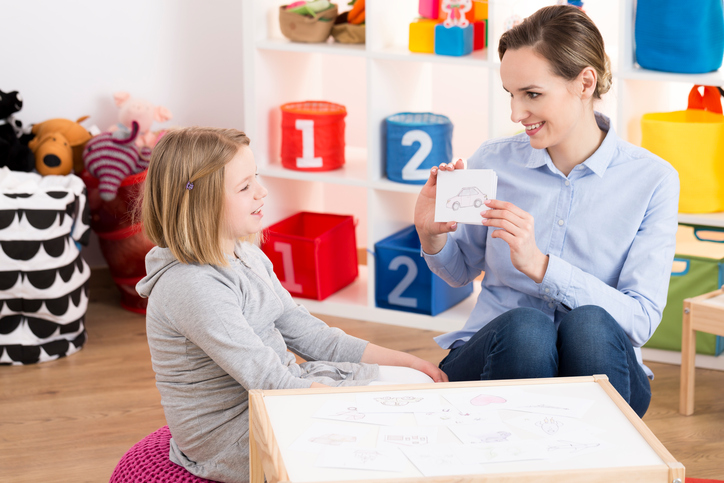What to Expect When your Child has a Speech and Language Evaluation
For weeks or months (or maybe even a year) you have been feeling that your child may need more than extra help at school or tutoring. You may feel that it is time for a speech and language evaluation with a Speech-Language Pathologist (SLP). Many parents come to us for a variety of reasons:
-They are unable to understand what their child says
-Their child has difficulty producing a certain sound and it is negatively affecting the way he says words.
-Their child is having difficulty answering comprehension questions.
– Their child is not using words at all to make requests or communicate with others.
-Their child has difficulty with the social aspect of language (forming relationships with other children, or saying socially inappropriate things)
-Their child already has speech therapy at school and they want more intervention.
-There is stuttering present in the child’s speech
If this is your first time meeting a Speech-Language therapist you may not know what to expect. Now before I type another word I think it is important to make a disclaimer that every SLP (Speech Language Pathologist) is different and each has her own way of completing an evaluation. But the goal is the same: to gather as much information about your child’s speech and language skills and past history in order to formulate a plan to improve your child’s language skills.
A speech and language evaluation is made up of the following parts:
- Past History and Medical History. The therapist that you choose may have you complete a case history form or conduct a parent/caregiver interview in order to find out about the child’s history, whether there is a family history of this difficulty, whether she has seen a specialist in the past, if there were complications with the pregnancy or delivery. Has hearing been test recently and whether there are any concerns. It is very important that you complete the case history form completely. It is also important to share with this therapist if your child has had therapy before or your child is seeing any other specialists such as a behavior therapist or occupational therapist.
- The therapist will need to measure your child’s speech and language skills and she will do that by giving him or her some type of formal test to measure his or her skills against skills of children his or her age. If the child is very young, the SLP may choose to complete a questionnaire with you that measures these same skills. To parents, this assessment may look like just ‘playing’ but every thing we do with your child has a purpose. We may call his name from different places around the room to see if he tracks sounds. We may ask questions about pictures, or have a pretend picnic to see if he follows directions, engages in pretend play or can identify pronouns (its ALL language)!
- Scoring/Recommendations/Planning. Some therapists may ask that you come back for another appointment for the results of the evaluation; some may choose to call you at a later date and discuss results. In our office we score the test right away and discuss the results on the same day of the test so we can get input from the parents about future goals and therapy sessions.
So there it is. That is what happens during a speech/language evaluation. There are a few things you can do as a parent to make this process a bit easier:
- Make the appointment for a time that your child is at his best. Making an appointment for a two year old during his naptime will not let your child be at his best.
- If possible complete the case history before the appointment.
- Come to the appointment a little early if possible but definitely on time.
- Try not to bring too many people (family members and siblings) to the appointment. If you must bring other siblings-then try to bring someone that is able to watch them in the waiting room.
- Prepare your child for what is happening. Let him know what is going on. Many children come to our office scared because they think they are going to get shots, or are wary to because they are meeting a new person.
- Be honest. Honesty is always best when starting a new relationship with a therapist or service provider. If you are feeling apprehensive or you have had a rocky experience with a therapist in the past—share that with your new therapist.
- Be open. Know that we want to help your child as much as we can. When we work together it really makes a difference.















Leave A Comment
You must be logged in to post a comment.